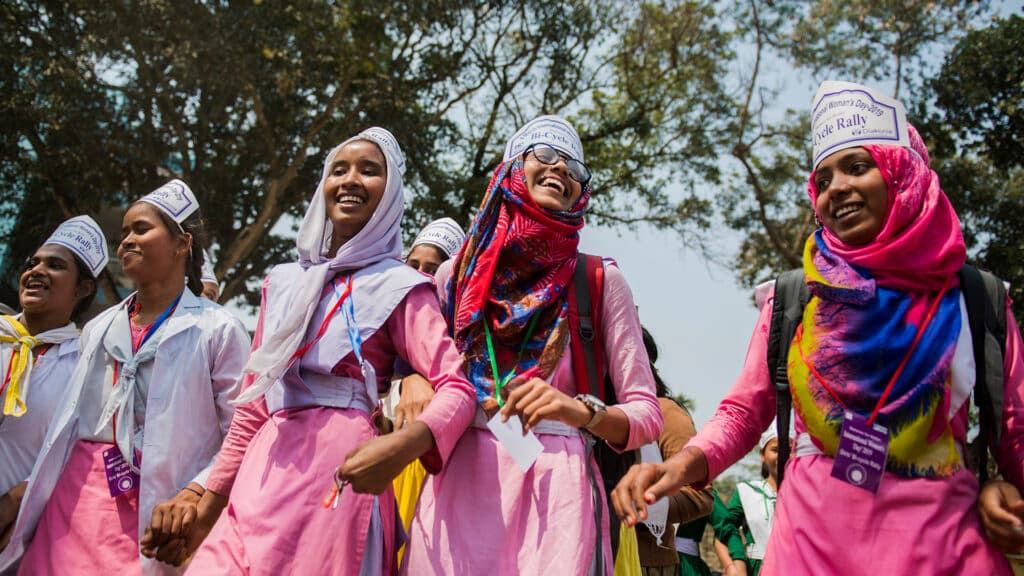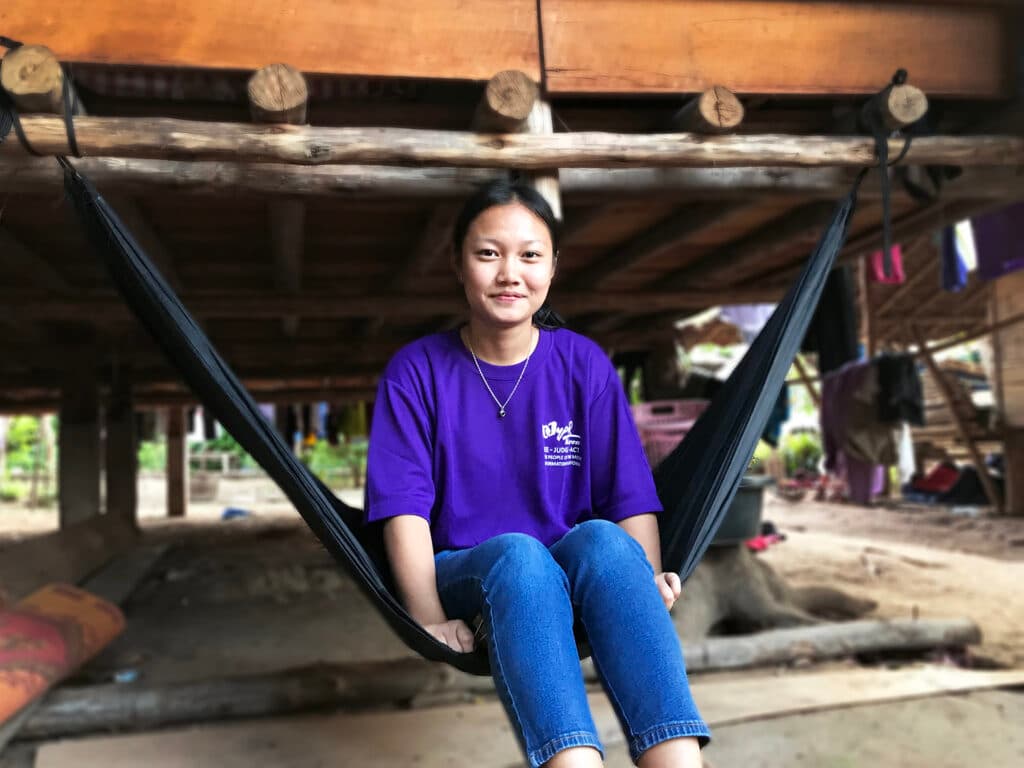
Bangladesh
Diakonia operates in partnership with NGOs in Bangladesh, increasing awareness and respect for human rights and gender equality, improving access to social and economic resources. The work is mostly carried out in the rural areas of the country.
Bangladesh is a small South Asian country by the Bay of Bengal, bordered by India and Burma/Myanmar. The country is one of the most densely populated countries in the world. The main sources of income are agriculture, the service sector and the textile industries.
Bangladesh maintains steady economic growth and social development. The country has been successful in reducing its poverty rate – real per capita income has increased over the last decade. However, there is substantial inequality in wealth and income. More than one third of the population is struggling in abject poverty. The vast majority of the poor is concentrated to rural areas and living under the poverty line of $1.25 per day.
Geographically, Bangladesh is one of the most disaster-prone countries in the world, with cyclones, floods, waterlogging, droughts, landslides and earthquakes. These events are exacerbated by the effects of climate change. Despite emitting the lowest volume of greenhouse gases, Bangladesh is nevertheless extremely vulnerable to the impacts of global warming.
Violence against women - an obstacle to development
Gender-based discrimination, particularly violence against women is a major concern and an obstacle to real development in Bangladesh. Women suffer from poverty and economic and social disadvantages at much higher rates than men.
Gender discrimination manifests itself in unequal property rights and wages, in violence against women, both in the home and outside it, in gender stereotyping and in discriminatory beliefs that restrict women’s economic, political, social and cultural opportunities. Women’s economic dependency limits their opportunities to protest against disadvantages or to take action against discrimination within their own family and society.
Our work in Bangladesh
We have been working in Bangladesh since 1970, when a devastating cyclone hit the southern parts of the country. This makes Diakonia the first organization registered under the government’s NGO Affairs Bureau.
Our long presence in the country has strengthened our relationships with stakeholders. This enables us to work for equality and justice in times of difficulty, by offering support during crises such as disasters, political instability, human rights violations and gender-based violence.
Together with our partner organizations, we work to empower rights holders, create resilient communities and promote people’s participation in socio-economic, cultural and political governance processes.
The partner organizations work at a national level, as well as in various rural districts, with a special focus on disadvantaged women and young people. Our partners also work with community leaders, civil society, local government, media and government authorities.
We have built awareness and respect for human rights, created scope for a democratic environment, improved access to social and economic resources, broadened disaster mitigation strategies and promoted gender equality.
Diakonia’s work makes a difference
Together with our partner organizations and the most vulnerable men, women and young people, we have strengthened community-based actions and support, facilitating community groups such as gender development forums, social entrepreneur groups, adolescent groups, student volunteer groups and village development committees. These groups have been formed to monitor and respond to violence against women, increase awareness and respect for human rights and uphold people's right to access social services. Through this focus, we have seen successful cases of communities preventing child marriages and violence against women.
For more information
Khodeja Sultana, Program Manager Bangladesh
E-mail: khodeja.sultana@diakonia.se
Phone: +880 2 912 12 56

Protecting Labour Rights and Factory Safety in Bangladesh
Bangladesh’s economic growth mainly depends on labour-intensive, export-oriented industrialization. Although labour is the country’s strongest comparative advantage source, the workers’ conditions and safety are still major areas of concern. Diakonia and a partner in Bangladesh work to improve the situation.

Transforming endless poverty in Balurmath slum
Since 2021, Diakonia’s partner BARCIK has worked with 500 families in the Balurmath Slum in Dhaka. In addition to providing skill development training and agriculture knowledge, the organization also facilitates cultural activities with the youth living in the areas, and encourages the slum dwellers to claim their housing and other basic rights with the relevant policymakers.
Community disaster management saves lives
The Gender and Resilience project was created as a response to Diakonia’s ambition to strengthen its work on disaster risk reduction and to bridge the humanitarian and development work.
As a result of the project, women and youth developed community based disaster management plans with a special focus on the most vulnerable and marginalised people.

Karate creates a new role
“I wish for my students to grow up and do good in society,” says Gaetree Roy. “It’s my hope that they’ll work to stop child marriage, that they’ll defend others who are affected, that they’ll help children complete their education. I want to see ‘my’ girls do good for other people.”
Gaetree is a karate trainer and role model in Bangladesh.


